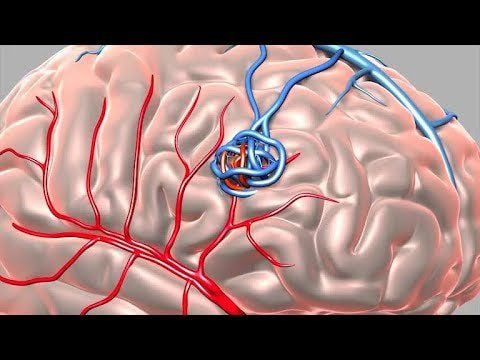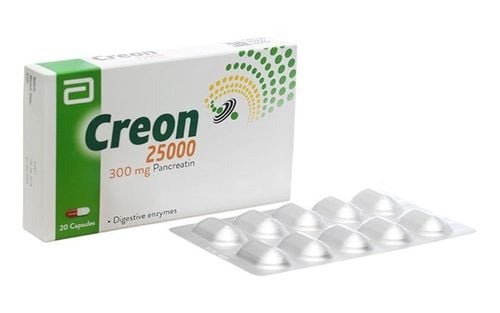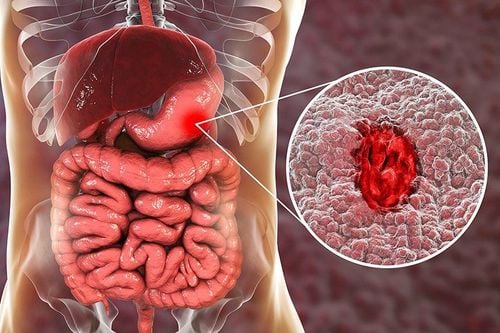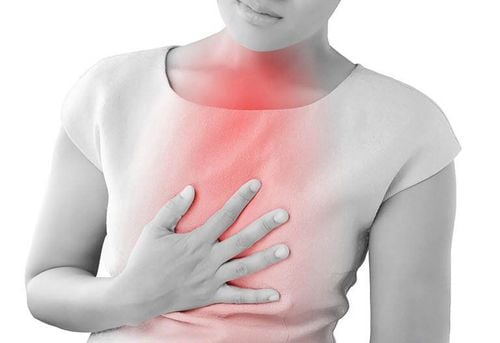This is an automatically translated article.
The article is expertly consulted by MSc Duong Xuan Loc - Gastroenterologist - General Surgery Department - Vinmec Danang International General Hospital.Epigastric pain and black stools are warning signs of many dangerous diseases. Therefore, patients need to be very careful with these symptoms, should go to the doctor for accurate diagnosis and timely treatment intervention.
1. Causes of epigastric pain
The epigastrium is located above the navel and below the tip of the sternum. Epigastric pain is a dull pain, pain immediately after eating or when the patient lies down after eating. In some cases, the patient has a writhing epigastric pain, sometimes a sharp pain in the back.Epigastric pain is often accompanied by other common symptoms in the gastrointestinal tract such as bloating, heartburn,...
Common causes of epigastric pain include:
Overeating: When eating too much much, the stomach will expand beyond its normal size, putting pressure on the surrounding organs, causing symptoms of intestinal pain, shortness of breath, heartburn, acid reflux, pain in the epigastrium; Drinking beverages that cause epigastric pain: Many people have difficulty digesting dairy products, cheese due to lactose intolerance, causing symptoms of diarrhea, epigastric pain, bloating, nausea,... Besides, drinking too much alcohol can cause inflammation of the stomach lining, leading to stomach bleeding, pancreatitis, liver disease, ... causing pain in the epigastrium; Indigestion: Usually occurs after eating, accompanied by symptoms of belching, bloating, nausea. When eating, the stomach will secrete acid to digest food, sometimes the acid can irritate the lining of the digestive tract, causing pain in the epigastrium; Gastroesophageal reflux: Stomach acid or food in the stomach goes back up into the esophagus, causing pain in the chest, throat, and epigastric pain. This situation repeats with a frequency of more than 2 times / week can cause gastroesophageal reflux disease; Esophagitis: An inflammation of the esophagus that causes pain in the epigastrium. If not treated early, the disease can lead to scarring, narrowing of the esophagus, leading to difficulty swallowing; A hiatal hernia: Occurs when part of the stomach is pushed up through the diaphragm into the chest wall, causing epigastric pain. In addition, the disease also has other symptoms such as difficulty swallowing, sore throat, irritation in the throat, discomfort in the chest,...; Peptic ulcer: Occurs when bacteria or drugs damage the lining of the stomach and intestines. Symptoms of the disease include epigastric pain, nausea, vomiting, flatulence, delayed digestion, abdominal bloating Gallbladder disorders: Causes symptoms of jaundice, nausea and vomiting, loss of appetite, epigastric pain, diarrhea prolonged, clay-colored stools, severe abdominal pain after eating; Gastritis: Occurs when the stomach lining becomes infected with bacteria, disrupts the immune system, or suffers from ongoing damage to the stomach. Gastritis can be acute or chronic if left untreated. Common symptoms of the disease include epigastric or chest pain, nausea, vomiting, vomiting blood, black stools; Pregnancy: Pregnant women also often experience epigastric pain as the growing fetus puts pressure on the abdomen. In addition, pregnant women also have hormone changes and digestive system should have frequent heartburn symptoms. However, epigastric pain during pregnancy is sometimes a symptom of preeclampsia, so pregnant women need to be careful and closely monitored; Other causes: Gastric perforation, bile duct worms, pancreatitis, pancreatic head cancer, acute or chronic colitis, liver or biliary tract disease.
2. Causes of black stools
Bleeding from the upper gastrointestinal tract (esophagus, stomach, small intestine);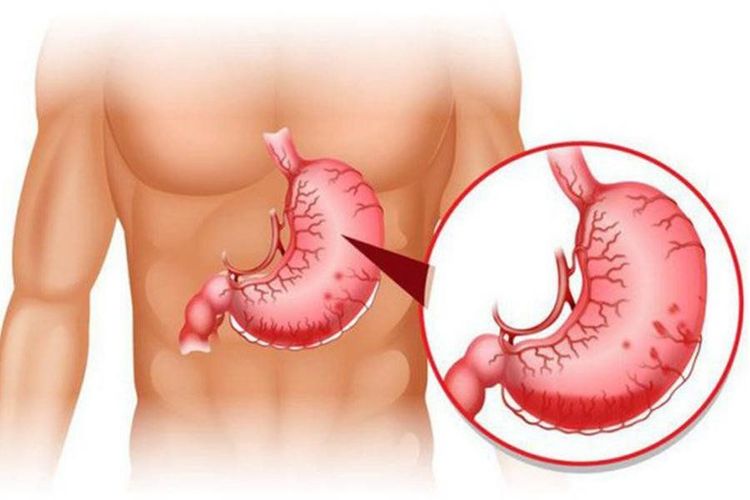
3. Epigastric pain, black stool is what disease?
The combination of both epigastric pain and melena may be chronic gastric bleeding. These small and bleeding lesions, if not treated early, can be life-threatening. Possible complications include:Anemia: The lesions will go deep into the stomach lining, bursting blood vessels, causing massive bleeding, the patient will lose blood and fall into a state of dizziness. , vomiting blood, fainting, ...; Perforation of the stomach : Damage to the stomach , penetrating the stomach wall will cause gastric juice to escape out of the abdomen causing necrosis of other organs in the body ; Stomach cancer: Damage caused by ulcers for a long time causes cells in the damaged area to change malignantly and develop into cancer cells.
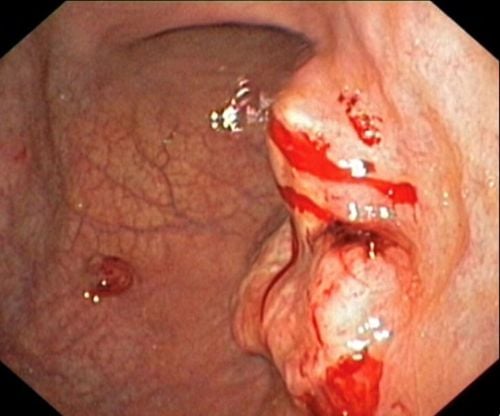
4. Measures to prevent epigastric pain, black stools
Eat more vegetables, foods rich in natural fiber, reduce foods containing saturated fat to reduce the risk of constipation, hemorrhoids, colon diverticulum and colon cancer; Avoid prolonged or excessive use of anti-inflammatory drugs such as naproxen, ibuprofen and aspirin; Limit alcohol consumption because drinking a lot of alcohol can irritate and damage the lining of the esophagus and stomach; Do not smoke because this is a causative agent of gastric - duodenal ulcers and gastrointestinal cancer. When epigastric pain is accompanied by symptoms such as black stools, dizziness, dizziness, sweating, ... the patient should go to the doctor as soon as possible to do the necessary tests to help diagnose exact cause and timely treatment.Please dial HOTLINE for more information or register for an appointment HERE. Download MyVinmec app to make appointments faster and to manage your bookings easily.





